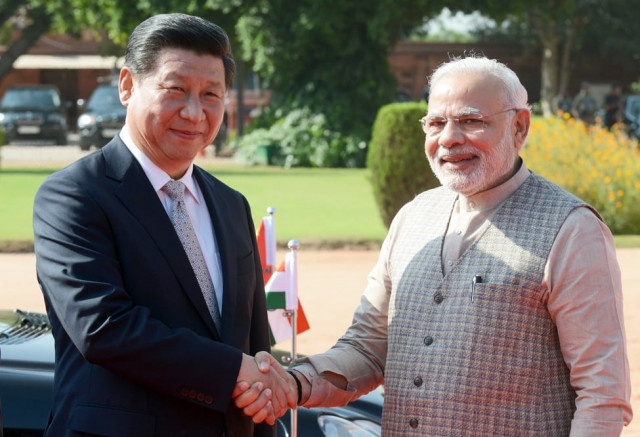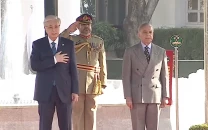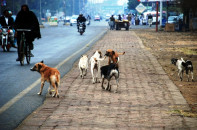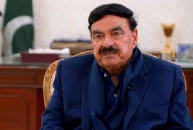Border row hangs heavy over Chinese president's first India visit
Two countries have long been embroiled in dispute over border, with both sides accusing soldiers of crossing over

As Xi Jinping hailed the potential of stronger ties between China and India to bring "peace and prosperity" to 2.5 billion people, local media reported that hundreds of troops were engaged in a stand-off in the northern Ladakh region.
The two countries have long been embroiled in a bitter dispute over their border, with both sides accusing soldiers of crossing over into the other's territory.
The neighbours, now nuclear-armed, fought a brief but bloody war in 1962 over the Indian state of Arunachal Pradesh in the eastern Himalayas, and are still embroiled in a bitter dispute over the territory.
AFP could not confirm the incursion reports, but a Ladakh lawmaker who asked not to be named said around 1,000 Chinese troops had crossed into the Indian side on Wednesday - as Xi began his visit.
"The government has sent reinforcements," he told AFP.
Foreign ministry spokesman Syed Akbaruddin said Modi raised the issue on Wednesday, as Xi began his first official visit to India, and would do so again in formal talks on Thursday.
Modi has rolled out the red carpet for the Chinese leader, hosting a private dinner in a luxury riverside tent in his home city Ahmedabad on Wednesday.
India's new leader is eager to secure Chinese funding to fulfil his election pledge to overhaul India's crumbling infrastructure, which experts say has held back much-needed economic growth in the country of 1.2 billion people.
At an official welcome ceremony at the Indian president's palace in central New Delhi, Xi hailed the benefits of stronger ties to "bring benefits to the 2.5 billion people in China and India".
"During this visit, I hope to work with the Indian leadership to be strong advocates of China-India relations and to partner with each other to take our strategic and cooperative partnership for peace and prosperity to a higher plane."
Despite his hardline nationalist reputation, Modi moved quickly to engage with China after taking office in May, swiftly extending an invitation to Xi. He has also spoken of his admiration for China's economic success.
China, meanwhile, is keen to foster warmer ties with its western neighbour at a time of heightened tensions with Japan and several Southeast Asian nations over disputed sea territory.
But while the two sides have been at pains to stress cooperation ahead of the visit, much remains that divides them.
Modi said during his election campaign that China would have to shed what he called its "expansionist mindset", tapping into popular sentiment in India.
Last April India accused Chinese troops of intruding deep into Indian-held territory, sparking a three-week stand-off that was only resolved when troops from both sides pulled back.
China's close ties with Pakistan and growing influence in India's backyard are another source of tension.
Xi, the first Chinese president to visit India since 2006, arrived from the Maldives and Sri Lanka, where he announced large-scale investment and sought to boost ties in the politically sensitive area of defence.
Despite repeated denials from Colombo and Beijing, some in New Delhi still fear China's growing engagement in the region is a deliberate strategy to encircle India.
The presence in India of the Dalai Lama, Tibet's exiled spiritual leader, is another source of tension between the two countries.
Police in New Delhi detained around 10 Tibetan protesters outside the Chinese embassy on Wednesday morning and security was beefed up around the compound Thursday.
Xi has pledged greater investment from China, already India's biggest trading partner, with annual two-way commerce of more than $65 billion.
India has been pushing for more investment to narrow the trade deficit with China, which has soared to more than $40 billion from just $1 billion in 2001-02.
China, which built the world's largest high-speed rail system from scratch in less than a decade, is keen to secure business for its state industries as India overhauls its infrastructure.
On Wednesday it agreed to build an industrial park in the prosperous Indian state of Gujarat, where Modi served as chief minister before taking over as prime minister.



















COMMENTS
Comments are moderated and generally will be posted if they are on-topic and not abusive.
For more information, please see our Comments FAQ